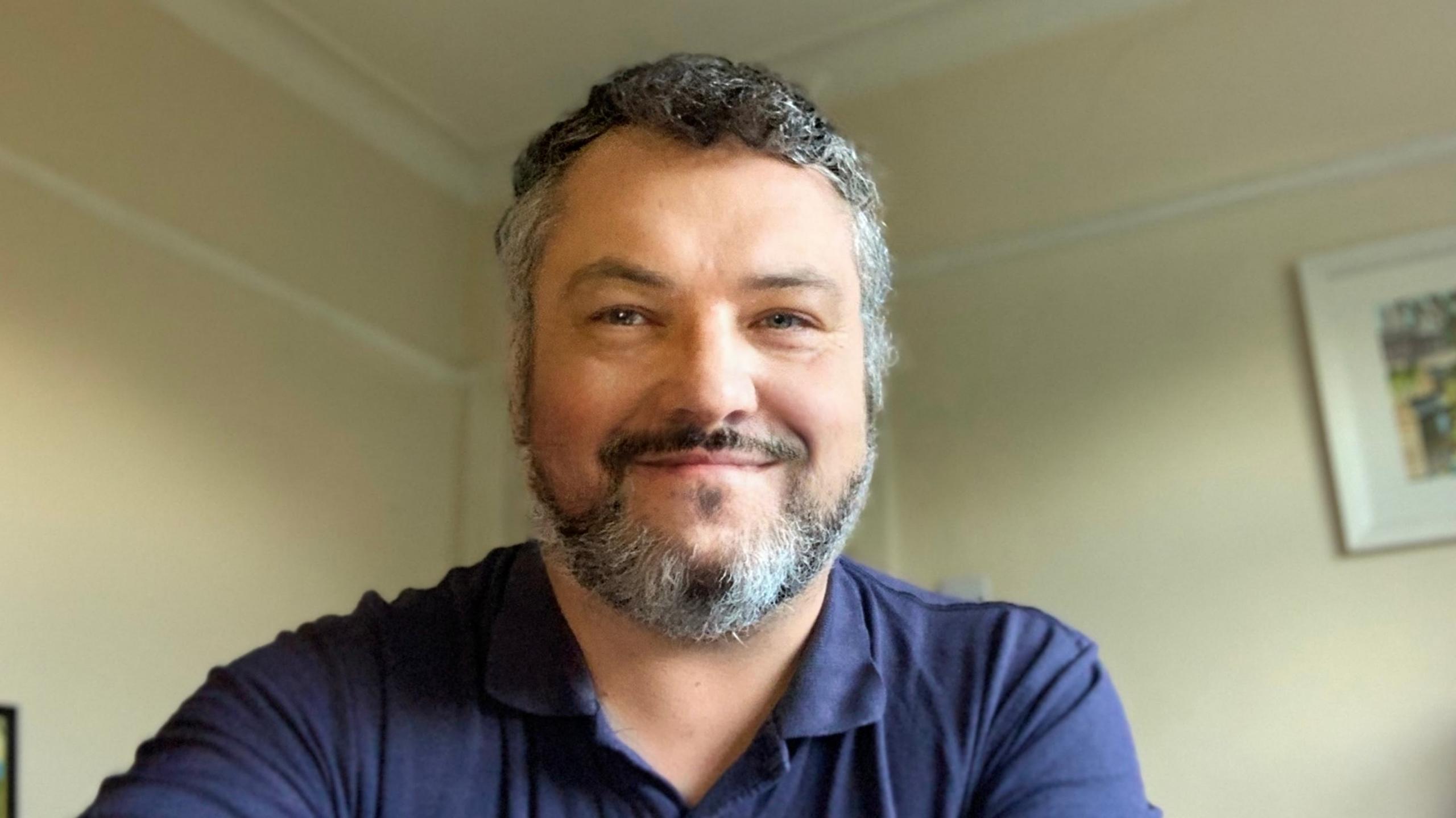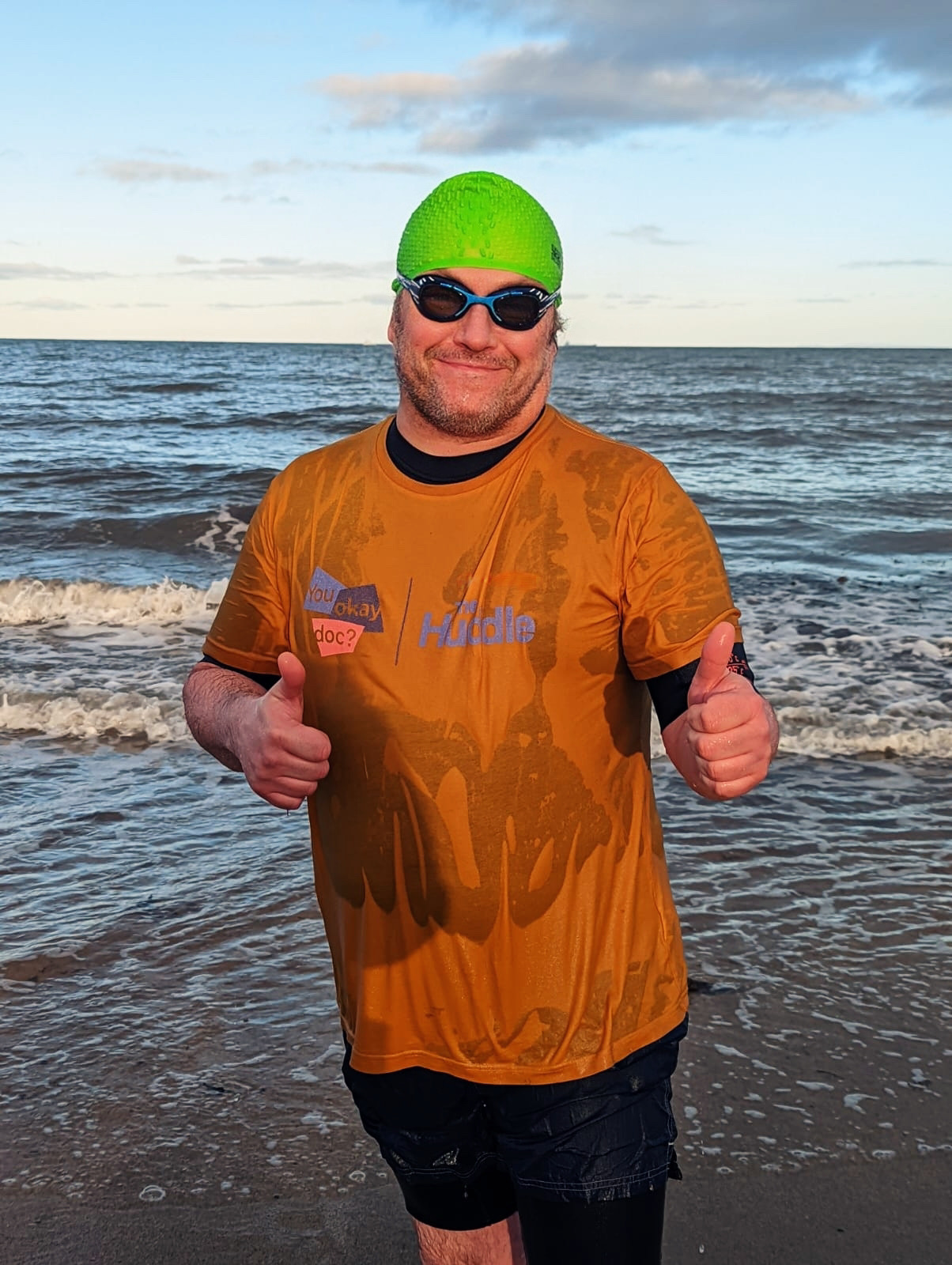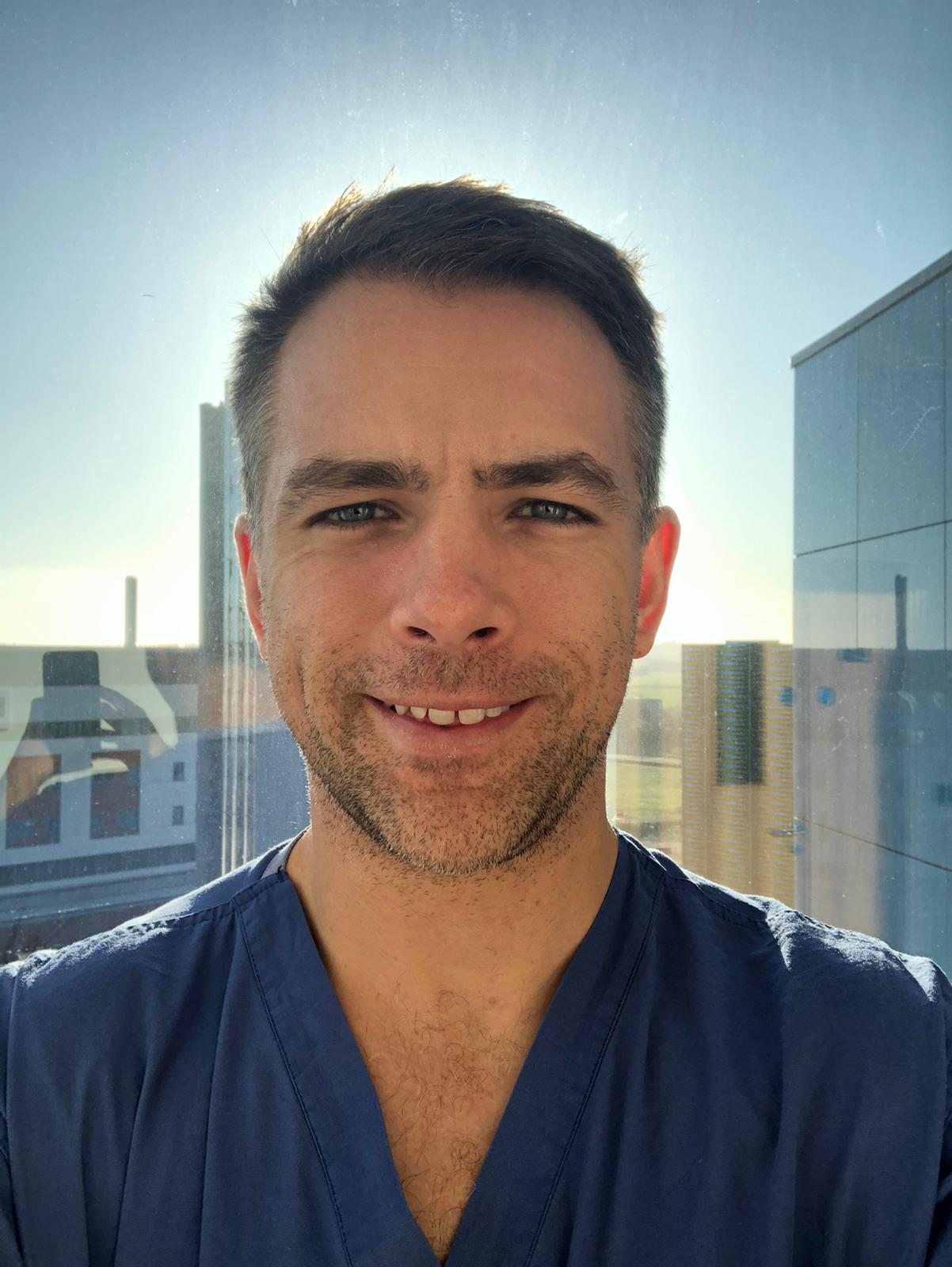Silencing the stigma
Dr Philip McGeown, 47, from Belfast tells us how You Okay, Doc? helped him after he experienced a mental health crisis, and why its work challenging the stigma surrounding mental health in the medical sector is so important
For Dr Philip McGeown, becoming a doctor was something he had always dreamt of. However,making the transition from medical student to paediatric doctor in 1999 was more challenging than he expected. “Although I had studied really hard at medical school, I felt imposter syndrome for a long time due to my working class background, which didn’t seem to be common in medicine. However, I buried my feelings, not really knowing how to address them.”
Although Philip had a great relationship with the patients and parents he worked with, he found himself struggling with the politics of being a doctor. “Whereas a lot of people I met and worked with knew well the whole medical training pathway – that you train to do this, take this exam, and do this rotation to become a consultant or GP – I hadn’t really factored all that in and always just thought, ‘I’m going to do medicine and be a doctor.’ It all became quite overwhelming for me.
“I started in paediatric children’s medicine and rotated through various hospitals in Northern Ireland, but it just kept getting more difficult. We did quite bad hours initially – working 24 hours straight once every three days – and were never out of the hospital. I had little sleep or social interaction.
“My daughter was born in 2002 and I didn’t want to be doing that all the time, so I dropped out of the training to become a consultant in 2004 and applied for a post called staff/associate specialist grade in paediatrics. However, the hospital had started to realise they could use the staff grade position to plug gaps in rotas – whereas before it was a 9-5 position – so my working hours were a bit all over the place, incorporating overnight shifts and long hours.”
By this time, Philip was experiencin constant low moods and apathy. “Over the years I just started to get a bit more despondent and lose hope for the future. I didn’t realise I might be unwell, and also the stigma of seeking help was very powerful in my own mind. Mental care and well-being were never touched on in my medical training, so I didn’t realise I could or should get some help. I was paddling under the water just trying to keep myself afloat, thinking I just had to work harder and be perfect.”
In 2013, Philip experienced a mental health crisis. “I had been isolating myself for a very long time and my low mood was distressing for my wife and daughter, who had to move out for a period of time. My wife was thinking of my daughter first and foremost, which she should have been doing, but unfortunately it allowed me to go more into that cycle of isolation. It had also become obvious to my colleagues I was unwell and my performance had started to fall off at work. I was eventually signed off work in 2014 at the request of my manager.”
Philip sought professional help, which was another difficult process. “I ended up visiting a few different GPs, but I knew some of them and had even taught or supervised some, so it was difficult to get a normal GP interaction and be a patient. Some also worried about prescribing me medication, as they thought it would have connotations for my job. Eventually, I did get a GP who was very good and referred me to mental health services and put me on medication.”
In 2015, Philip attended an appointment with a psychiatrist who diagnosed him with dysthymia (also known as persistent depressive disorder), which is a form of continuous and chronic depression that had culminated in a major depressive episode. He then had to wait another year to receive cognitive behavioural therapy (CBT). “I attended weekly CBT sessions for the next three years. It took me a while to trust the system and my therapist, but he was very understanding and helped me to eventually open up and share the extent of my feelings, and I began to make progress.”
After finishing his CBT sessions in 2019, Philip felt he wanted to organise some of the things he had journalled during his illness in a blog or on social media, in a semi-anonymous way. “Initially, it was more of a therapeutic exercise for me, but then I thought there might be some lived experience I could put forward to share with others. I wanted to move forward, and for me, the best way to do that was to feel a sense of purpose and that I was contributing to something.”
His daughter suggested he try Instagram and helped him set up an account. “Not long after joining, I discovered You Okay, Doc? and I really identified with the charity’s posts and information. It seemed to understand the difficulty a doctor would go through getting, accepting and continuing with help, and offered a safe space independent from work and career. I felt very positive about its outlook and mission and loved that it had a community feel, which is really important for someone recovering from a depressive illness to help build connection with others.
“I started to connect with the charity on Instagram, and also watched some of its Microsteps Webinar Series – where there were talks from experts in different fields, including fitness and mindfulness – which I really benefited from.”
In late 2020, Philip was pointed in the direction of the charity’s peer support group, The Huddle. “It took me a while to build up the courage to join in over Zoom, but I eventually did that in early 2021 and have been attending every week since.
“The group is hosted by a psychotherapist, who is very good at teasing out how you are feeling and helping you find solutions for things yourself without even realising it. It’s also a great opportunity to share your experience with others, listen to what they have been through and realise you’re not alone and that other doctors go through the same thing. I realised I wasn’t unusual, weak or a failure for having a mental health condition.”
At the end of summer 2021, Philip started gradually returning to work, doing a few hours a week. “Being in The Huddle really helped with that and supported me as I navigated the endless meetings with the trust and management, which could sometimes be difficult. I was able to talk about it each week in the group and express my feelings, which really helped.”
Philip is now planning his future goals and how to move forward thanks to the support of the charity. “As well as attending The Huddle, I have taken part in many fantastic fitness and mental health sessions over Zoom and have got many practical ideas to improve my well-being, which has helped me to improve my day-to-day life and role within my family, as well as supporting me with my goal to eventually increase my hours at work.
“The ability to help others in difficulty by sharing my story in The Huddle has also given me a sense of purpose, which has been really beneficial. Going forward, I would love to play some part in reducing the stigma for doctors and evolving the culture within the profession to a more open and honest respect for mental health issues and well-being by sharing my story. If I can help improve the experience for another doctor going through what I went through and help them know they’re not alone, that would be a fantastic thing to be able to do.”
THE CANID BIG GIVE 2022:
TOTAL RAISED: £17,543
The money raised in the Candis Big Give will go towards improving the mental well-being of doctors through support, activity and information.
This will include the provision of regular tips for busy frontline workers on how to take care of their mental health, webinars and podcasts that challenge the stigma and educate on mental health issues, regular free exercise and nutrition classes, and a 24/7 text service for any NHS worker who is struggling.
It will also fund the charity’s flagship service, The Huddle – a safe group space hosted by psychotherapist Chris Cherry that is evidence based and has had excellent feedback on its success in supporting doctors experiencing mental health issues. It is every Wednesday evening online for a maximum of 12 people, and the charity plans to introduce another one every Monday. It also offers them in hospitals, so different hospitals can host their own Huddles.
The charity will continue to work to change the perceptions of mental health for those working in the medical sector, where there is still an aspect of stigma and doctors can struggle to prioritise looking after themselves. It has created an ambassador network of about 50 doctors who support and help to get out its message to all corners of the UK.
Visit youokaydoc.org.uk for details.
WHAT YOU OKAY, DOC? MEANS TO ME
Dr Daniel Gearon, founder and CEO of the charity, explains why he set up You Okay, Doc? and why its work is so important
“I work as a surgical trainee in the NHS and at medical school spent a few months shadowing my cousin, who was a consultant anaesthetist. In 2016, when I was a first-year doctor, she tragically took her own life.
Over the next few years, I started to see a lot of mental health and well-being issues in my colleagues and came across some horrific statistics – such as that 80 per cent of all doctors are at high risk of burnout, and doctors are between two to five times more likely than the general population to take their own life.
I started thinking there must be more that could be done for those experiencing mental health issues within the medical profession.
In 2018, with that in mind, I set up the charity You Okay, Doc? with co-founders
Chris Cherry – who is a UKCP-registered psychotherapist – and Derrick Dennard, a retired businessman, who sadly passed away last year. Our aim was to address mental health in medical professionals by offering support and changing perceptions of mental health for those working in that sector, where there is still a lot of stigma involved.
We launched in March 2020, providing a few services such as The Huddle, which was really successful during the pandemic. Now we’ve evolved to create multiple partnerships and offer a 24/7 confidential text service that any healthcare professional can use. We also launched You Okay, Nurse? at the start of 2022.
I think the charity is really special, as we are making a tangible difference to doctors and their lives and regularly get positive feedback. In the medical profession, people move around a lot, so the fact we have created a community for them that is not changing and not going anywhere, in itself is a comfort and support.
It is fantastic to be able to help doctors improve their own well-being and livelihoods, and as a result, to also help the patient care they’re delivering. It’s nice to know that even when I’m not working as a doctor, I am helping people through the charity. That’s really important to me.”





Leave a Reply
Please login or register to leave a comment.